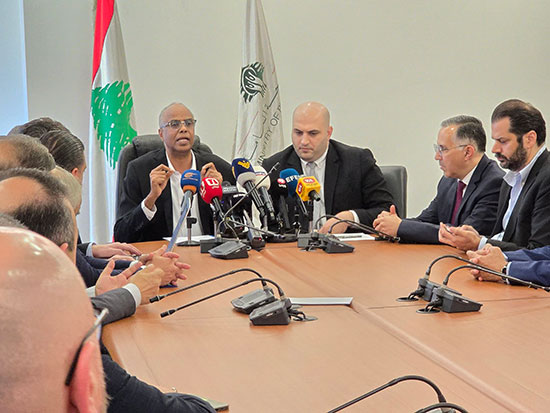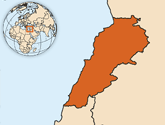
10 April 2025, Beirut, Lebanon – The World Health Organization (WHO), with generous funding from the Central Emergency Response Fund (CERF) and the Government of Ireland, has delivered 24 000 lifesaving dialysis sessions at 19 public hospitals across Lebanon.
The dialysis support package will benefit approximately 500 patients over a 4-month period, ensuring continuity of treatment for individuals with kidney failure amid Lebanon’s ongoing health emergency.
At a press conference held today in Beirut, Minister of Public Health Dr Rakan Nassereldine hailed the support the package afforded Lebanon’s health system. He was joined by WHO Representative in Lebanon Dr Abdinasir Abubakar, humanitarian partners and the directors of the 19 supported public hospitals.
“The valuable donation highlights a noble humanitarian gesture that embodies the highest values of international solidarity and cooperation, particularly as it targets vulnerable patients suffering from chronic kidney disease who require regular and ongoing treatment. The generous donation will help ease the burden on patients and their families,” said Dr Nassereldine.
Noting that in Lebanon an estimated 4500 patients with end-stage kidney failure rely on haemodialysis, typically requiring 13 sessions per month, WHO Representative Dr Abubakar said: “This contribution is more than numbers – it is about safeguarding lives and upholding the right to health, even amidst ongoing emergencies.”
Against a backdrop of compounding crises, ranging from the aftermath of the Beirut Port explosion to escalating regional conflict, Lebanon’s health system has come under extraordinary pressure. WHO has remained a steadfast partner, supplying dialysis kits, renal medications and other critical supplies to ensure service continuity.
The latest support, made possible through timely and flexible funding from CERF and the Government of Ireland, highlights the tangible, lifesaving impact of coordinated international solidarity.
The supplies are being distributed to all 19 public hospitals currently offering haemodialysis services, alleviating pressure on Lebanon’s broader dialysis network which totals 78 centres, 59 of which are privately run.
“This initiative underlines WHO’s commitment to integrating care for noncommunicable diseases, such as chronic kidney disease, into emergency preparedness and humanitarian response,” noted the WHO spokesperson . “People living with chronic conditions must not be forgotten during crises.”
The Minister thanked WHO, the Republic of Ireland and CERF for their support, saying such close cooperation is a model to be emulated and underscores the importance of international partnerships in addressing health challenges.
WHO reaffirmed its commitment to strengthening Lebanon’s health infrastructure and ensuring uninterrupted access to lifesaving services for the most vulnerable, thanks to the continued support of donors such as CERF and the Government of Ireland.








